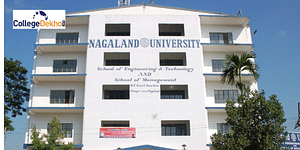BSc in Microbiology Career Opportunities
Job opportunities for BSc Microbiology students open up in healthcare, pharmaceuticals, military, food industry, research and development industry, etc. BSc Microbiology candidates can work as microbiologists, operations managers, senior research scientists, quality control microbiologists, clinical research associates, bacteriologists, virologists, biochemists, immunologists, geneticists, etc. Many candidates also choose to pursue an MSc in microbiology or an MSc in applied microbiology to advance their careers. The skills acquired through BSc Microbiology include numerical, analytical, observational, attention to detail, decisiveness, independence, etc., making the aspirants a valuable asset.
BSc in Microbiology Jobs Overview
Jobs after BSc Microbiology are Microbiologist, Operations Manager, Senior Business Analyst, Senior research scientist, Quality control Microbiologist, Clinical Research Associate, etc. In India, starting salaries for graduates with a BSc in Microbiology typically range from INR 3 - 5 LPA, depending on the candidate's level of experience.
After completing their BSc in Microbiology, some students go on to pursue higher education to enhance their knowledge and skills. Some of the popular courses after BSc Microbiology are MSc Microbiology, MSc Applied Microbiology, MSc Medical Microbiology, and MSc Microbial Genetics and Bioinformatics.
The scope of the BSc Microbiology course in India is expanding, with many job opportunities in new industries and companies such as military health care institutions, WHO, UNESCO, space and research agencies, agriculture fields, and organic sectors. The BSc Microbiology syllabus and subjects are organised around a comprehensive framework that includes relevant and necessary topics such as mycology, industrial microbiology, and biostatistics.
Table of Contents
- BSc in Microbiology Jobs Overview
- BSc in Microbiology Jobs Highlights
- Top BSc in Microbiology Job Profiles with Details
- Top Academic Courses to Pursue After BSc in Microbiology
- Career Opportunities after BSc in Microbiology
- Skills Required for BSc in Microbiology Jobs
- Top Companies Hiring BSc in Microbiology Graduates
- FAQs about BSc Microbiology Jobs
BSc in Microbiology Jobs Highlights
The following are some of the major highlights of the BSc Microbiology job.
| Name of the Course | BSc Microbiology |
|---|---|
| Career Options | · Bacteriologist · Virologist · Mycologist · Medical Microbiologist · Protozoologist · Food Microbiologist · Geneticist · Biotechnologist · Cell Biologist · Industrial Microbiologist · Biochemist · Immunologist · Environmental Microbiologist · Biomedical |
| Average starting salary | BSc Microbiology Salary is INR 2 - 4 LPA |
| Internship | There are a lot of internship opportunities for a BSc Microbiology Course in India. |
| Scholarship | Candidates belonging to reserved categories and economically weaker sections are eligible for state government scholarship schemes. AICTE Tuition Fee Waiver Scheme (only for 5% students in each state) Deemed or private universities offer merit scholarships (based on marks in entrance exam or Class 12th) |
| Top recruiters | Mascot International, Serum Institute of India, Biocon Biologics India Limited, Lakshmi Life Sciences Ltd, Pharmaceutical Companies, etc. |
Top BSc in Microbiology Job Profiles with Details
Microbiologists are highly sought after in today's fields of Biotechnology, Quality Control, and Medical Research. In academic institutions, pharmaceutical and bioscience companies and organisations, many graduates find work as researchers. Without a focus on original research, graduates of the BSc Microbiology programme also advance in clinical or technical laboratory-based careers. There are numerous job opportunities available to those who want to work in the field of microbiology. The Food Industry, Research and Development Organisations, the Chemical Industry, and the Pharmaceutical Industry are just a few of the industries that microbiology graduates can work in after graduation.
Graduates of the BSc Microbiology programme can also work as science writers, creating content for working Microbiologists. The pay of Microbiologists is determined by a variety of factors, including their Education, Experience, and Job Description.
The table below lists some of the well-known professional positions that BSc Microbiology graduates can pursue along with the associated salaries.
| Job Position | Job Profile | Average Annual Salary |
|---|---|---|
| Bacteriologist | The job of a bacteriologist is to study various bacteria that are constantly evolving and changing. Their primary responsibility is to conduct laboratory research for the government or pharmaceutical companies. | INR 2.91 LPA |
| Virologist | A virologist is a specialist who studies the evolution, structure, and characteristics of various viruses. His primary responsibility is to isolate and cultivate important viruses in a standard inhibitory medium while keeping variables like aeration, moisture, temperature, and nutrition under control. | INR 10 LPA |
| Mycologist | A mycologist is an expert in the study of fungi, which are self-contained organisms like bacteria, plants, algae, and animals. Mycologists typically study the organism-based mechanisms of toxic, edible, and parasitic fungi in order to identify organisms that can be useful in the medical, industrial, and agricultural fields. | INR 6 LPA |
| Cell biologist | Cell biologists study the characteristics, interactions, and structure of a cell's molecules in order to draw broad conclusions or learn more about how a cell's behaviour affects a specific organism. | INR 10.7 LPA |
| Biochemist | Biochemists study the chemical mechanisms underlying all fundamental life processes and are concerned with the chemical composition of living things. With the help of research, experimentation, and study, these experts will be able to provide us with a wealth of background information on topics such as genetics and heredity. | INR 7 LPA |
Note: The figures mentioned above are subject to change.
Top Academic Courses to Pursue After BSc in Microbiology
Following completion of the BSc Microbiology programme, there are some of the most popular academic courses to pursue after BSc Microbiology:
MSc Microbiology: Most students pursue MSc Microbiology after completing a BSc in Microbiology. MSc Microbiology is a two-year advanced postgraduate course that combines Chemistry and Biology. MSc Microbiology can be pursued after completing a bachelor's degree in Botany, Zoology, Chemistry, Physiology, or Microbiology. MSc Microbiology is the study of Biology and Chemistry in relation to the environment and its ecosystem. The average fee for this course ranges between INR 50K and INR 3 LPA.
MSc in Applied Microbiology: After completing a BSc in Microbiology, candidates can pursue this specialisation in Microbiology. MSc Applied Microbiology focuses on microbiology applications in a variety of fields. The average course fee of an MSc in Applied Microbiology course is INR 2-5 LPA.
Career Opportunities after BSc in Microbiology
A BSc Microbiology candidate has a wide range of employment options, including those as a Bacteriologist, Microbiologist, Mycologist, Virologist, and other professionals. They may work in research facilities, medical facilities, educational institutions, as well as the food, beverage, chemical, and agricultural sectors. Not only do they have plenty of opportunities locally, but they can also find employment abroad and earn good pay.
Some of the most popular professional jobs for BSc Microbiology graduates are listed below:
- Bacteriologist
- Virologist
- Mycologist
- Cell biologist
- Biochemist
Skills Required for BSc in Microbiology Jobs
Candidates must be familiar with the skills required to make this course and learning effective.
- Attention to Details
- Excellent Observational Skill
- Numerical Skill
- Impeccable IT skills
- Analytical Skills
- Adjustment Skills
- Team Building Skills
- Patience
- Hard Work
- Decisiveness
- Independent
Top Companies Hiring BSc in Microbiology Graduates
Top companies hiring BSc Microbiology graduates are as follows:
- Mascot International
- Serum Institute of India
- Biocon Biologics India Limited
- Lakshmi Life Sciences Ltd
- Pharmaceutical Companies
FAQs about BSc Microbiology Jobs
Can I do an MBA after BSc in Microbiology?
Yes, you can pursue an MBA after completing a BSc in any field. The basic eligibility criteria for an MBA are primarily a bachelor's degree with minimum marks specified by the university, as well as GMAT scores and work experience.
What degree can one do in BSc in Microbiology?
One can pursue a regular/full time degree in BSc Microbiology.
Is BSc in Microbiology a difficult course to pursue?
Microbiology is a difficult subject to study, but it holds the key to unlocking the mysteries of life. In the context of plants and animals, there are two components of living organisms: Nutrition and Energy Source. Microbial Structure and Function, on the other hand, are somewhat simpler to comprehend.
What are the job opportunities after BSc in Microbiology?
The field of Microbiology Science offers a variety of career options in the healthcare industry, including in the Diagnostic, Hospital, Pharmaceutical, Clinical Research, and Genetics sectors. A science student should investigate these industries to learn about the various occupations and career paths available there.
What are the government jobs after BSc in Microbiology?
After earning a BSc in Microbiology, candidates can apply for positions as a Scientist, Research Assistant, Technical Assistant, Field Assistant, or Project Assistant in various government agencies.
Is BSc in Microbiology a good career option?
Opportunities in fields such as healthcare organisations, forensic science labs, environmental organisations, higher education institutions, food and beverage, publicly funded research organisations, pharmaceuticals, and many other industries are available to those with a degree in Microbiology.
What is the scope of BSc in Microbiology in India?
Students who earn a BSc in Microbiology can work in a range of fields, including Biotechnology, Environmental Science, Healthcare, and Food Production. A Microbiologist, Research Scientist, Medical Laboratory Technician, or even Science Writer are all possible careers.


















